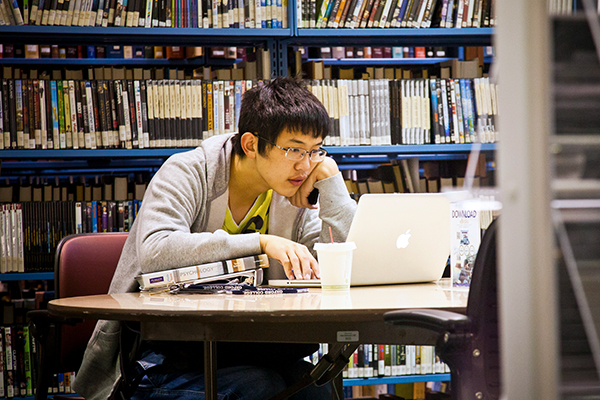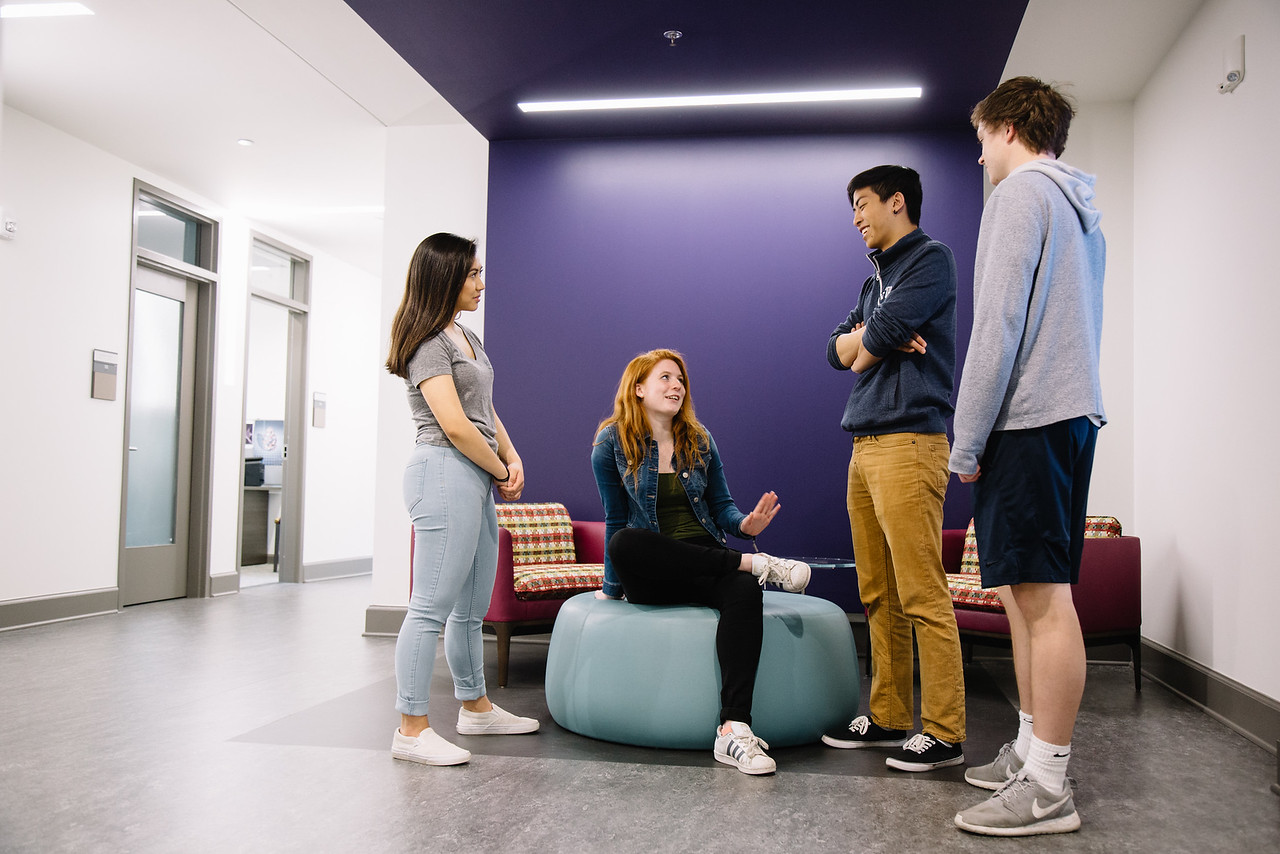Scott is a Vice Dean of Admission here at Emory University and has been in…
Strong Personal Statements, Part 1: Demonstrate your Curiosity for Learning

We’re sharing exceptional personal statements from last year’s applicants to illustrate that a good personal statement can be on a variety of topics, but ultimately, showcases the student’s character, curiosity, and voice. These statements, written by students now enrolled at Emory University, were selected for a multitude of reasons, and we asked our admission staff to share what made each statement stand out.
This is one of a 5-part series on application writing; read Part 2 here, Part 3 here, Part 4 here, and Part 5 here.
Share an essay on any topic of your choice. It can be one you’ve already written, one that responds to a different prompt, or one of your own design.
Nothing has fascinated me more than the concept of libraries. They provide the illusion of finality, a lovely feeling when you’re writing a research paper worth half of your class grade. I walked down the narrow hallway, surrounded by stacks of old anthologies and monographs, boots clacking loudly in the small room. The aroma of old paper spilled in from nonexistent vents, overwhelming but strangely comforting. I let my own mind wander as I pulled books from shelves; quiet noise echoing as the hardcovers fell open. I was alone, but I could feel the authors’ voices surrounding me, feeling their desperation in the search for knowledge, just like me. The interesting aspect of libraries is that we all, in a sense, have our own inside us. We collect memories, and we use them to build the future. What if we saw memory as final? Would we ever push towards the future, then? Does our concept of knowledge have to be continuous?
We are all defined by knowledge. The first time I went to the Adler Planetarium as a kid in Chicago, I knew the vastness of our universe would drive me to spend my life searching for answers. The fickle part of knowledge, though, is that we can never truly define its end. Lord Kelvin famously declared that all of physics had been discovered merely years before Einstein’s work in relativity. If we learn anything from Kelvin, it’s that knowledge is never simply a point on a plane. Rather, it’s the limit of infinity, something beautifully undefined. We search and search forever, but this is, in itself, a noble pursuit. The very satisfaction in knowledge is its inability to truly quantified; as we push towards the boundless future, we find joy in human existence.
The amazing part of knowledge is its infinitesimal beauty. Personally, I find knowledge in my old cryptography book. It was an impulse buy, but it ended up showing me that problem solving is always incremental, not definitive. There’s nothing like cracking open a cypher that was previously thought too difficult; nothing like watching all the figures fall into place from one right move, a calculated shot in the dark. Knowledge is our foundation for existence – how could we survive without a sense of awareness, of clarity, in a world so large and incomprehensible? Knowledge is fluid, malleable; knowledge is awareness. We learn and grow, we gain knowledge. We explore the region, the continent, the world, the universe – with knowledge, we build our identity. Knowledge builds our existence.
I believe that life is beautiful. For a self-proclaimed existentialist, the irony is certainly not lost on me. Even so, to deny the wonder in the unrestricted wild of the mountains, the deafeningly silent museum exhibits, or the hidden library bookshelves would be simply absurd. So, what defines life? When you walk down empty hallways and feel vastly alone, when you grasp onto your seat as the airplane takes off, feeling out of breath and control, when you hear a song that feels made for your ears – the rush of adrenaline that binds us all – this is existence. What defines existence? The journey that characterizes human life; whether you find meaning in the soul or in the sky, it’s the search that defines us. It’s knowledge. I want to redefine how we conceptualize knowledge. So often we try to reduce error like a repeated experimental trial. We work towards the noble goal of finality, but we tie our own hands. We spend our lives finding meaning in existence, but cut ourselves short by losing the connection to knowledge that makes us so fundamentally human. The beauty in knowledge is the introspective nature of our own existence. Just like my journey through the library hallway, we learn that finality doesn’t make a great research paper – the spirit and drive of inquisition does.
Feedback from Admission Staff
As we read applications, each student has a team of admission staff assigned to their file to review it and assess the student’s potential. The staff responsible for this student’s file had this to say about the personal statement:
Let’s be honest, with over 27,000 applicants, finding a unique topic for your personal statement may be hard to come by, so instead, try and focus on finding your voice. Not only was this essay topic not a standard choice, it was also very well-written with expressive language and interesting vocabulary. This applicant did not appear to try too hard to pick the “right” topic, nor did they just re-write their extracurricular activities in the form of an essay. The author gave the reader insight into who they are by showing rather than telling us explicitly.
The author of this essay demonstrated a level of maturity beyond their years. They gave us insight into their genuine curiosity for learning, their wondrous nature, and their desire to seek knowledge in all its many forms.
When we are reading applications, part of the process is imagining applicants on campus and how they will contribute to our community of vibrant thinkers, engaged students, and courageous learners. When reading this essay you can truly imagine this student exploring one of Emory’s many libraries and engaging with their professors and fellow classmates.
Don’t hesitate to connect with us by posting a comment to this blog, tweeting us @emoryadmission, or emailing us at admission@emory.edu. We look forward to hearing from you!



I really hope I write a better essay that will be perfect like this one.
We all are curious about some form of knowledge in life. Expressing it is in matter of fact might be tough . Above answer and its review by admission staff inspired me to find my own voice where I can demonstrate the form of knowledge I have always been curious about.
Hi Dikshant,
I’m happy to hear you were inspired by this essay! We thought this was a great example of application essay writing and wanted to share it with others 🙂
-Jessica M.